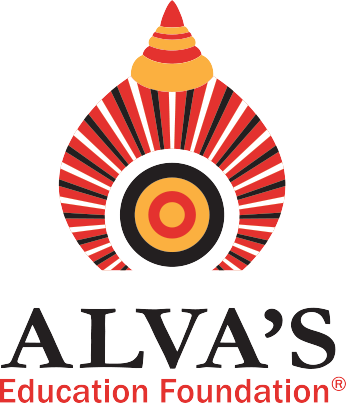-
NBA Accreditation at Alva’s Institute of Engineering and Technology
Alva’s Institute of Engineering and Technology, located in Mijar, Moodbidri, has established itself as a leading institution dedicated to quality education, innovation, and student success. One of the key achievements that sets the institute apart is its NBA (National Board of Accreditation) recognition. NBA accreditation ensures that the institute’s engineering and management programs meet the highest academic and professional standards, aligning with both national and international benchmarks.
Accreditation not only validates the credibility of an institution but also enhances students’ opportunities in higher education, placements, and research. At Alva’s Institute of Engineering and Technology, NBA accreditation is a testament to its commitment toward delivering outcome-based education and holistic student development.
Program Outcomes (POs) for UG Programmes
Alva’s Institute of Engineering and Technology ensures that every undergraduate engineering programme is built on clearly defined Program Outcomes (POs). These POs reflect the skills, knowledge, and competencies students are expected to achieve by the end of their course.
PROGRAM OUTCOMEs (POs) for all the UG PROGRAMMES
|
|
PO1
|
Engineering Knowledge: Apply the knowledge of mathematics, science, fundamentals, and an engineering specialization to the solution of complex engineering problems related to automobile engineering.
|
|
PO2
|
Problem Analysis: Identify, formulate, research literature, and analyze complex engineering problems reaching substantiated conclusions using first principles of mathematics, natural sciences, and engineering sciences.
|
|
PO3
|
Design/Development of Solutions: Design solutions for complex engineering problems and design system components or processes that meet the specified needs with appropriate consideration for the public health and safety, and the cultural, societal, and environmental considerations.
|
|
PO4
|
Conduct Investigations of Complex Problems: Use research-based knowledge and research methods including design of experiments, analysis and interpretation of data, and synthesis of the information to provide valid conclusions in automobile.
|
|
PO5
|
Modern Tool Usage: Create, select, and apply appropriate techniques, resources and modern engineering and IT tools including prediction and modelling to complex engineering activities with an understanding of the limitations.
|
|
PO6
|
The Engineer and Society: Apply reasoning informed by the contextual knowledge to assess automobile based societal, health, safety, legal and cultural issues and the consequent responsibilities relevant to the professional engineering practice.
|
|
PO7
|
Environment and Sustainability: Understand the impact of the professional engineering solutions in societal and environmental contexts, and demonstrate the knowledge of, and need for sustainable development.
|
|
PO8
|
Ethics: Apply ethical principles and commit to professional ethics and responsibilities and norms of the engineering practice.
|
|
PO9
|
Individual and Team Work: Function effectively as an individual, and as a member or leader in diverse teams, and in multidisciplinary settings
|
|
PO10
|
Communication: Communicate effectively on complex automobile engineering activities with the engineering community and with society at large, such as, being able to comprehend and write effective reports and design documentation, make effective presentations, and give and receive clear instructions.
|
|
PO11
|
Project Management and Finance: Demonstrate knowledge and understanding of the engineering and management principles and apply these to one’s own work, as a member and leader in a team, to manage projects and in multidisciplinary environments
|
|
PO12
|
Life-Long Learning: Recognize the need for, and have the preparation and ability to engage in independent and life -long learning in the broadest context of technological change
|
Program Outcomes for PG Programme – MBA
The NBA accreditation for the MBA program at Alva’s Institute of Engineering and Technology emphasizes developing professionals who combine knowledge, ethics, and innovation.
PROGRAM OUTCOMEs (POs) for PG PROGRAMME-MBA
-
-
|
|
PO1
|
Sound Theoretical knowledge: Students are given sufficient theoretical knowledge and are enabled to apply them to solve practical problems in business and other organizations / institutions of importance
|
|
PO2
|
Communication Skills with Lateral and Critical Thinking Ability: Students are provided effective communication skills with a high degree of lateral and critical thinking that enhances learning ability, developed for being continuously employable.
|
|
PO3
|
Ethical leadership and Social Consciousness: Students are instilled with leadership qualities, ethically sound, enabled with decision making skills that reflect a high degree of social consciousness.
|
|
PO4
|
Research Orientation: Students are trained for sustained research orientation to comprehend a growingly complex, economic, legal and ethical environment
|
|
PO5
|
Self-sustaining Entrepreneurial Qualities: Students are equipped with self-sustaining entrepreneurship qualities that encourages calculated risk taking.
|
Final words
The NBA accreditation at Alva’s Institute of Engineering and Technology is not just a certification but a reflection of its vision to provide world-class education. For students, parents, recruiters, and global universities, it ensures trust, quality, and excellence.
With a focus on program outcomes, industry linkages, and holistic student development, the institute continues to nurture engineers and management professionals who are not just employable but also responsible global citizens.

